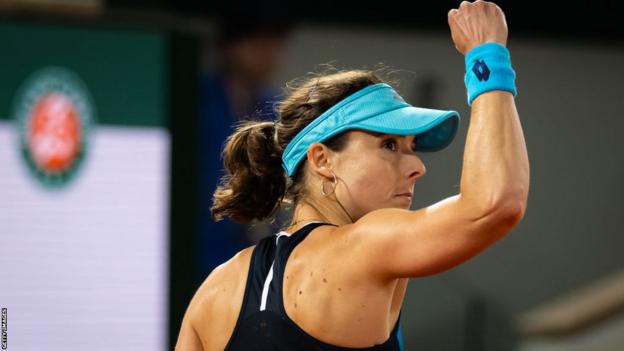There is one match that will receive extra scrutiny when the French Open order of play is released each evening.
The night-session match is promoted as the highlight of the day, but last year only one of the 10 matches involved female players.
And given the criticism the Madrid Open organisers received this month for not allowing the women’s doubles finalists to make presentation speeches, equality in scheduling is extremely topical.
The French Open tournament director is former world number one Amelie Mauresmo, but she says she cannot promise there will be an equal share of men’s and women’s matches in the night sessions this year.
Mauresmo argued 12 months ago that the men’s matches had more “appeal” and that it was hard to find enough stars or compelling match-ups in the women’s draw.
World number one Iga Swiatek found those comments “a little bit disappointing and surprising” and two-time Grand Slam champion Mauresmo, in her first year as tournament director, later apologised.
“To be honest, I’m not able right now to tell you anything about numbers of men’s or women’s matches,” Mauresmo told BBC Sport at Roland Garros last month.
“I think we have to wait for the draws first, and for the head-to-head every day because that is really what is pushing us to make a choice – to know which match is going to be the match of the day.”
Unlike the Australian Open and US Open, which schedule two night-session matches every day, the French Open has just one. Mauresmo says that complicates matters and points out there is equal billing if you consider the Centre Court programme as a whole.
“What we see on this [Philippe] Chatrier Court is we have four matches. We know for sure we have two men’s, two women’s. The one [night] match makes it quite impossible to satisfy everyone in a way, so we like to see it as one.”
Women’s Tennis Association (WTA) chief executive Steve Simon believes having women’s matches in the night session at all tournaments is “very, very critical” in the fight for equal prize money all year round.
“At the end of the day, you are what you say you are,” he told the BBC in Indian Wells in March.
“Unless you are showing the product in your primetime windows, you are telling the consumer what the value is. So it is very, very important that there is a mixture between the men and the women in…
Click Here to Read the Full Original Article at BBC Sport – Tennis…

